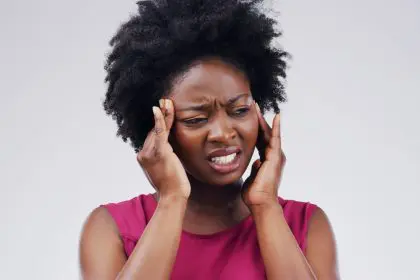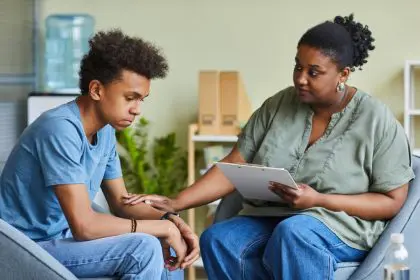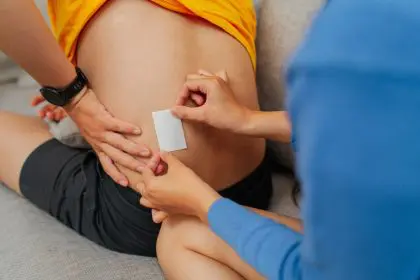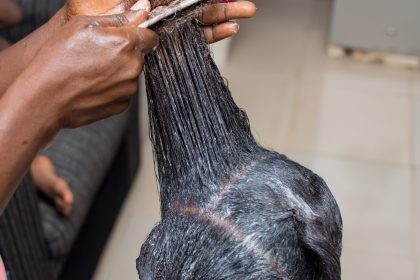My name is Tanya. I’m a single mother of an only child. I’m desperately seeking help for my son and others in this situation. Help raise awareness for Survivors of a Suicide Attempt (SOSA) and Erase the Stigma about suicide and mental health. Here’s a glimpse of our story!
On the night of October 16, 2011, my son Devin attempted suicide. Having left the house to take a trip to the store, he called me and asked me to look at photos on his computer. To my horror and dismay, it was a suicide video. Frantic, I kept him on the line and called the police from another phone explaining in detail my emergency. My son was sobbing as he told me he loved me. Then, there was the gunshot. He’d shot himself in the head.
He was placed on life support, had numerous surgeries, and his mouth was wired shut for months. He survived.
Today, he can function physically and cognitively, wears a dental prosthesis and has many more surgeries ahead. Things are complicated. He’s in turmoil and believes he can only relate to those who have also attempted suicide.
Before that day, things appeared to be moving forward. There weren’t any recognizable signs of behavioral issues and no need to seek a mental health diagnosis. He was/is loved and loving. He participated in recreational sports, was a member of a Boy Scout troop and the debate team; he was first chair bass in the orchestra; he paints art that’s seen on TV, writes music … I can’t pinpoint his emotional collapse, but believe it was a result of life experiences.
In 2005, I was diagnosed with Hyperacusis, which is a rare disorder that brings on a multitude of illnesses. It interrupted our lives. In 2009, his senior year of high school, I was diagnosed with breast cancer. I survived a lumpectomy and endured six and a half weeks of daily treatment but made sure he attended his prom and graduation. His father abandoned us. He was victimized by bullies in middle school, experienced betrayal by his friends, had girlfriend issues, was racially profiled and was considered socially awkward in high school – and later ridiculed in college for being different.
In 2011, during his sophomore year in college, which was a few months before the suicide attempt, I witnessed a change in his behavior. I sensed he was in agony. I sought help but felt I had no one to listen. I went to the police who said they couldn’t take him on a 10-13 without a threat, crime or mental health illness diagnosis. (One of those officers later came back to pick up his suicide video.)
I took him for mental therapy sessions and was told “he might be a little depressed.” My family dismissed his behavior as growing pains. At times, my son would leave the house upset, take walks and would cry uncontrollably for hours.
I contacted the Georgia Crisis Hotline and they explained that my son didn’t suggest immediate danger so they’d have to schedule an assessment for a later date in November. While sitting in the hospital’s ICU while my son was on life support, they called to confirm his appointment. Before and after the suicide attempt, efforts to find help for then suicidal tendencies and now suicide survivors have been frustrating. The state of Georgia lacks resources to educate and help individuals and families who survive suicide attempts.
It’s as if it’s expected for them to shake it off and re-acclimate to life as normal the next day. If they’re lucky, they’re granted 72 hours of stabilization before being released. Many times, there’s no follow-up care plan and the prescription medication could lead to another attempt.
I called and visited, hospitals, groups, therapists, hotlines, until finally, I located a facility in Los Angeles, Calif. that had a clinical trial, specifically, for survivors – Survivors of Suicide Attempt (SOSA). My son attended and explained how helpful and significant this type of treatment was and could be if it were worldwide. We came home to Georgia to individual therapy while I continued to search for options. I decided to write the White House in February 2013 and they responded with a case worker who affirmed “help is on the way”. Through a seminar, I linked with the Suicide Prevention and Georgia Behavioral Health Representative who said the same. We’re still waiting…
The affiliate in Los Angeles wrote an article on SOSA and featured my son and the clinician that established SOSA is willing to share this knowledge with any mental health facility/professional open for a successful idea that help save lives. We attended the Music Matters/Erasing the Stigma luncheon and the American Association of Suicidology Conference where I was able to share the need for groups like SOSA to be worldwide. We need your help!
My son is now 22 and I love him very much. He’s in a very rare group for many reasons and even though I know we couldn’t be the only ones experiencing this, it appears that way by the responses I get and the statistics professionals spout. Each time I share our story, it’s emotionally paralyzing but I must continue. All these individuals have a purpose because they survived. Mental illness does not mean “crazy” and the thought of suicide does not mean you have an incurable disease. These words have a stigma. We all have a story, a testimony and most of us are still in our test. We’re all unique with an opinion of what’s important to us and a threshold of what we can tolerate. How we navigate the details of our lives can be difficult when mental health challenges our clarity. If Georgia would establish clinical/peer groups specifically geared toward survivors of a suicide attempt and swaying suicidal tendencies where clinical leaders, medical professionals and mentors share platforms for these individuals to speak without fear of judgment and being stereotyped. We might positively change the idea of those with suicidal tendencies and help the survivor of a suicide attempt re-acclimate back into society. Let’s help them live.
Photo Credit: [email protected]















